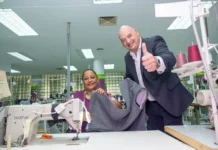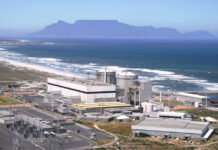Load shedding is having a disastrous impact on the local plastic manufacturing sector, with some SMME’s reporting declines of around 30%-40%, according to Plastics SA’s Anton Hanekom.
Many companies are unable to afford the massive capital expenditure required for alternative energy supply (hybrid solution of solar and other sources eg. generators) to offset the impact of high-stage load shedding, Hanekom told the Cape Chamber of Commerce and Industry in a video interview.
But without alternative energy the thermal processes central to plastic production were severely compromised, thereby impacting upon overall production.
The sector had endured a torrid first half of the year, in stark contrast to last year’s gains when the sector grew by 3,7% — far above GDP.
“However the first two quarters of this were a completely different story,” Hanekom said.
“As an industry, we are made up predominantly of small businesses, and they don’t have the capacity to make provision for alternative energy. Although they put in solar (installation) systems it is not sufficient to run production. The result is often that only key orders are being run and the rest is not taking place.”
“As we move into higher phases of load shedding it has the impact that we can’t produce.”
“We use mainly thermal processes. We need to heat the production machines to certain temperatures so we can melt the material to produce a product,” Hanekom said, adding that machines first needed to be meticulously cleaned before they could be reheated.
“When the power comes back on you first have to clean the machine, and takes a couple of hours to get it back to temperature. At high levels (of load shedding) we just don’t get to produce,” he said.
The negative impact is compounded by other challenges, such as logistics challenges and the volatile currency exchange rate.
Hanekom says a drop in plastic production impacts on most other economic sectors dependent in varying degrees on plastic products. A case in point is the agriculture sector which requires plastic packaging to protect food.
“Production problems, therefore, have a major ripple effect on the broader economy,” he said.
Hanekom believes the sector urgently requires government assistance to allow companies to invest in alternative power, for the greater good of the national economy.
Source: Cape Chamber of Commerce and Industry















